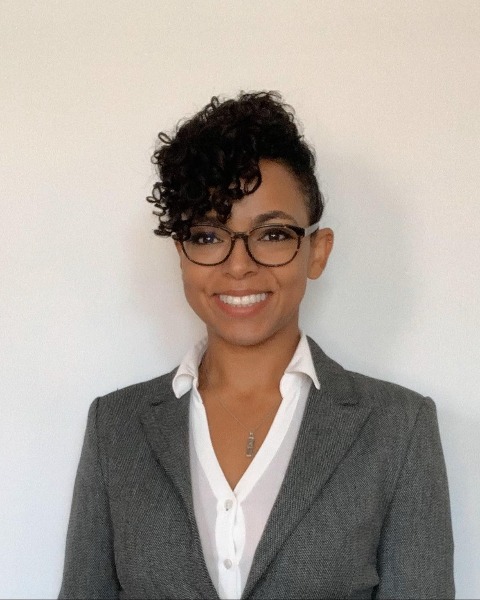Medical Education 7: DEI
Session: Medical Education 7: DEI
467 - The Mirror Study: Black Pediatric Residents' Perspective on Reflecting Patients During Racially Concordant Clinic Encounters
Saturday, April 26, 2025
2:30pm - 4:45pm HST
Publication Number: 467.6780
Clara Woods, UCSF Benioff Children's Hospital Oakland, Cherry Hill, NJ, United States; Javay Ross, UCSF Benioff Children's Hospital Oakland, Oakland, CA, United States; Dayna Long, UCSF Benioff Children's Hospital Oakland, Oaklnad, CA, United States; April Zaat, UCSF Benioff Children's Hospital Oakland, Berkeley, CA, United States

Clara Woods, MD (she/her/hers)
Resident Physician
UCSF Benioff Children's Hospital Oakland
Cherry Hill, New Jersey, United States
Presenting Author(s)
Background: Racial biases in healthcare and physician burnout are pervasive, preventable, and potentially lethal characteristics of modern medicine. Empiric data demonstrate that racially concordant care (RCC) improves patient-physician communication, patient outcomes, and provider job satisfaction. Racially concordant mentorship (RCM) is associated with significantly decreased instances of emotional exhaustion and work-related depression. Under-represented in medicine (URiM) physicians who had access to RCM were shown to achieve increased career advancement, greater career satisfaction, and higher job retention.
Objective: Residents have the highest risk of burnout and depression-like symptoms of all medical providers. When accounting for the intersectional racial/ethnic and professional identities of URiM residents, metrics of burnout increase in prevalence and severity. This results in more adverse health events and a critical workforce shortage of already URiM physicians. Notably absent in these conversations of burnout are the voices of Black residents. With this study, we aim to understand how providing RCC and receiving RCM impacts Black pediatric residents at University of California San Francisco (UCSF) Oakland.
Design/Methods: In Oakland, the BLOOM (Black Love Opportunity and Outcome Improvement) clinic provides wrap-around RCC for Black-identifying families, offering the ground-breaking training experience of a clinic with Black providers at every level. Using a case study framework, we are conducting focus groups and interviews with Black residents. An interview guide was developed with feedback from faculty and the research team. Transcripts were coded then analyzed with qualitative thematic analysis.
Results: In preliminary results, residents reported that providing RCC positively impacted patient communication and residents’ metrics of burnout. Also, the BLOOM clinic connected Black residents with a network of Black mentors who supported residents’ emotional well-being, helping them navigate the complexity of being Black in a medical system rooted in implicit and explicit racial bias. These benefits acted as protective measures of burnout for a marginalized workforce.
Conclusion(s): Providing an environment with RCM fosters a sense of belonging for Black residents. It creates a space for trainees founded in tenets of anti-racism, diversity, and cultural humility. Our data support the assertion that a racially concordant wrap-around clinic model is not only essential to patients but may allow medical institutions to finally address the burnout and subsequent “leaky pipeline” of URiM physicians.

